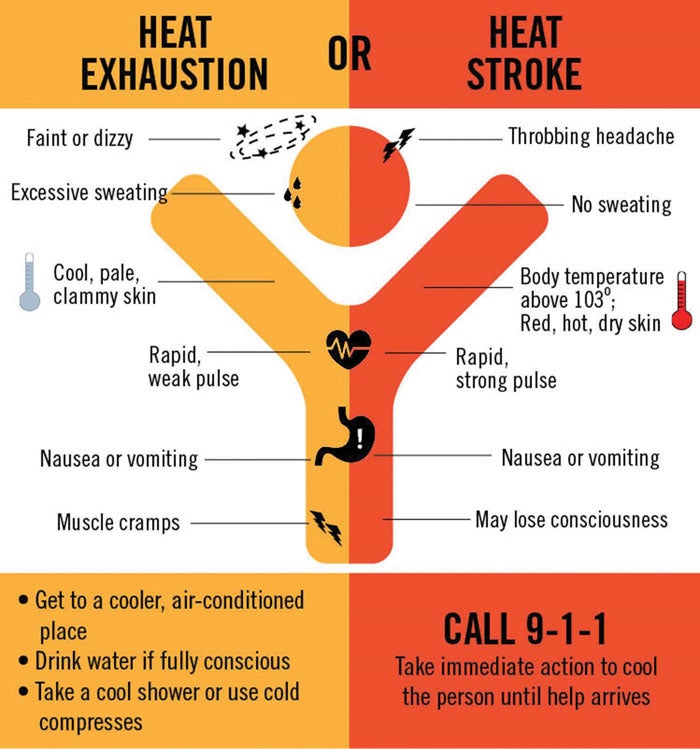The heat is on: What you can do
Published 12:00 am Friday, August 17, 2018
By Toi Degree
Rowan Cooperative Extension
We are in the midst of summer in the South, and we truly have had some very hot days.
Extreme heat, as it may be referred to, often results in the highest number of annual deaths among all weather-related hazards. In most of the United States, extreme heat is defined as a long period (two to three days) of high heat and humidity with temperatures above 90 degrees.
When someone is exposed to extreme heat, evaporation is slowed and the body must work extra hard to maintain a normal temperature. This can lead to death by overworking the human body.
Here are a few things that you need to know and remember:
- Extreme heat can occur quickly and without warning.
- Older adults, children and sick or overweight individuals are at greater risk from extreme heat.
- Humidity increases the feeling of heat as measured by a heat index.
If you are in an area under an extreme heat warning:
- Find air conditioning.
- Avoid strenuous activities.
- Watch for heat illness.
- Wear light clothing.
- Check on family members and neighbors.
- Drink plenty of fluids.
- Watch for heat cramps, heat exhaustion and heat stroke.
- Never leave people or pets in a closed car.
Prepare in advance by:
- Finding places in your community where you can go to get cool.
Keep your home cool by doing the following:
- Cover windows with drapes or shades.
- Weather-strip doors and windows.
- Use window reflectors, such as aluminum foil-covered cardboard, to reflect heat back outside.
- Add insulation to keep the heat out.
- Use attic fans to clear hot air.
- Learn to recognize the signs of heat-related illness.
Be safe:
- Find places with air conditioning. Libraries, shopping malls and community centers can provide a cool place to take a break from the heat.
- If you’re outside, find shade. Wear a hat wide enough to protect your face.
- Wear loose, lightweight, light-colored clothing.
- Drink plenty of fluids to stay hydrated. If you or someone you care for is on a special diet, ask a doctor how best to accommodate it.
- Do not use electric fans when the temperature outside is more than 95 degrees, as this could increase the risk of heat-related illness. Fans create air flow and a false sense of comfort but do not reduce body temperature.
- Avoid high-energy activities.
- Check you, family members and neighbors for signs of heat-related illness.
Recognize and respond; know the signs of heat-related illness and the ways to respond to it:
Heat cramps
Signs: Muscle pains or spasms in the stomach, arms, or legs.
Actions: Go to a cooler location. Remove excess clothing. Take sips of cool sports drinks with salt and sugar. Get medical help if cramps last more than an hour.
Heat exhaustion
Signs: Heavy sweating, paleness, muscle cramps, tiredness, weakness, dizziness, headache, nausea or vomiting, fainting.
Actions: Go to an air-conditioned place and lie down. Loosen or remove clothing. Take a cool bath. Take sips of cool sports drinks with salt and sugar. Get medical help if symptoms get worse or last more than an hour.
Heat stroke
Signs: Extremely high body temperature (above 103 degrees) taken orally; red, hot and dry skin with no sweat; rapid, strong pulse; dizziness, confusion or unconsciousness.
Actions: Call 911 or get the person to a hospital immediately. Cool down with whatever methods are available until medical help arrives.
For more information on extreme heat visit: https://www.cdc.gov/disasters/extremeheat/index.html
Toi N. Degree, Family and Consumer Education Agent with North Carolina Cooperative Extension Rowan County Center; toi_degree@ncsu.edu or 704-216-8970.




